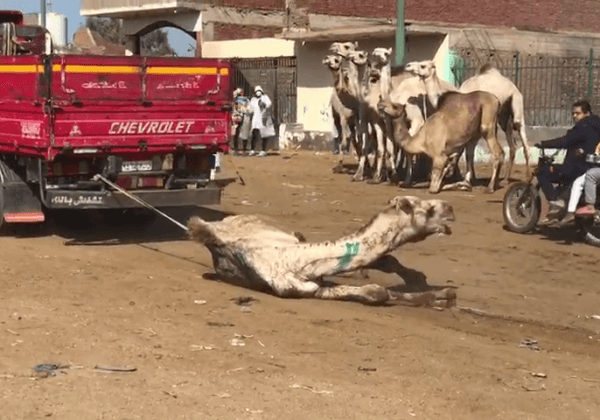Tour Guide in Thailand Trampled by Elephant After Tourist Pulls Animal’s Tail
Last Thursday, an elephant named Pai Utain charged into a group of tourists and trampled their tour guide to death at Sam Liam Thong Kham elephant camp near Pattaya, Thailand, after another tourist pulled his tail. Reports also say Pai was struck on the head by the guide with a bullhook, to get him to move. Pai had two tourists riding on his back at the time of the incident, one of whom was flung to the ground. Handlers, or mahouts, then tied Pai to a tree, where he was observed to be still shaking because he was so frightened.
Chinese tour guide trampled to death by elephant in Thailand https://t.co/fGgoVN40cz pic.twitter.com/15NSLoQIGy
— Channel NewsAsia (@ChannelNewsAsia) December 26, 2017
This isn’t the first time that an elephant exploited for rides has reached the breaking point. Earlier this month, another elephant used for rides in Thailand trampled a German tourist to death. Although the majority of these incidents have occurred in Thailand—the world’s largest promoter of elephant camps—injuries and deaths caused by captive elephants have been reported in other countries, such as Cambodia and Indonesia.
NEVER ride elephants or visit elephant camps ? Let’s help keep these animals safe! ❤️ https://t.co/3Vkqmyq4TL #NotOurs2Use pic.twitter.com/K3qjpLIusc
— PETA Asia (@PETAAsia) July 5, 2017
It’s no surprise that as one of the world’s most remarkable animals, elephants are a major draw for holidaymakers in Asia. Unfortunately, most tourists have no idea that the elephants used on these so-called “joyrides” are horribly abused and that some are justifiably ready to snap. These fatalities are tragic, but they’re the inevitable result of robbing highly intelligent, social beings of everything that’s natural and meaningful to them and treating them like props for tourists.
It’s been amply documented that most elephants used for rides are torn away from their mothers as babies; confined to tiny wooden crates; deprived of food, water, and rest; and tied down and beaten mercilessly with bullhooks—weapons resembling fireplace pokers with a sharp hook on one end—all to prepare them for a life of servitude in Thailand’s elephant camps. In nature, elephants stay in the company of family and friends, but those used for trekking spend most of their lives chained up and barely able to take a single step in any direction. They sway and bob their heads, trying to abate the mental anguish caused by their captivity.
What You Can Do
If a facility allows you to ride, hug, or take a selfie with an elephant or any other wild animal, you can be sure that the animal has been abused.
Tourists who pay for elephant rides and other direct-contact experiences are the ones driving this abusive industry. Please, if you’re traveling to Thailand or anywhere else that elephant rides are offered, refuse to support this cruelty and encourage your friends and family members to do the same.









